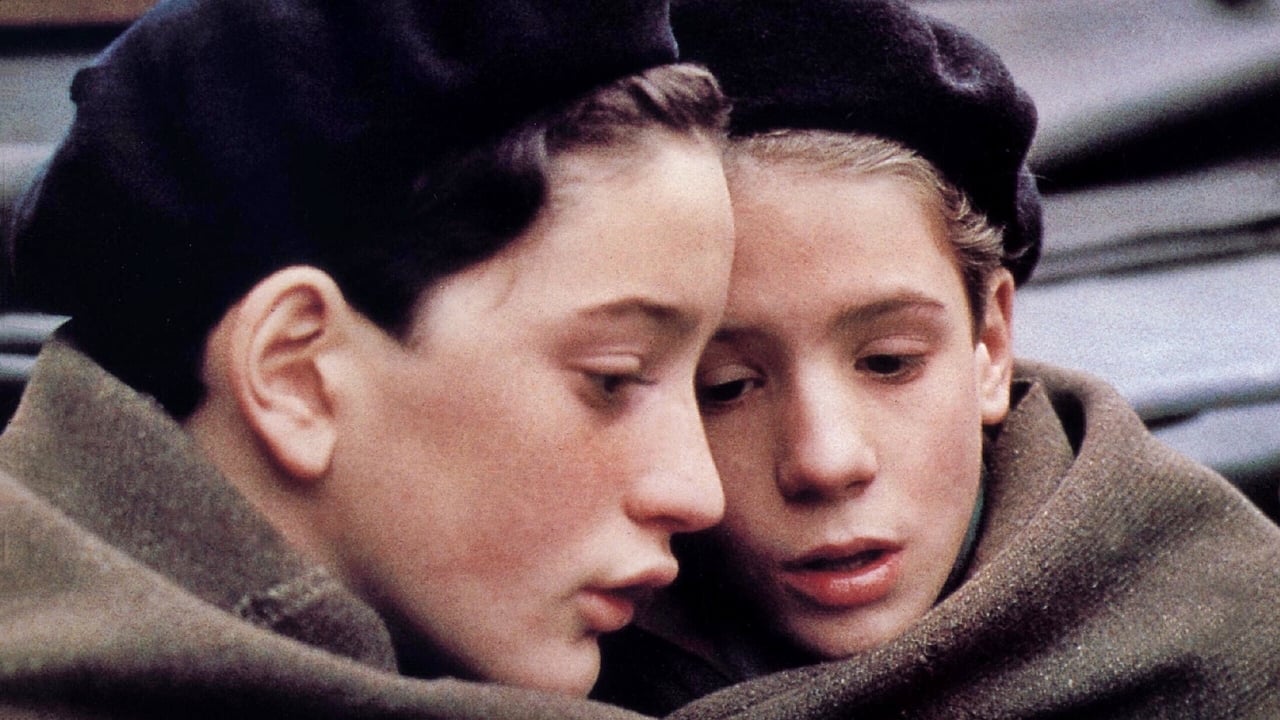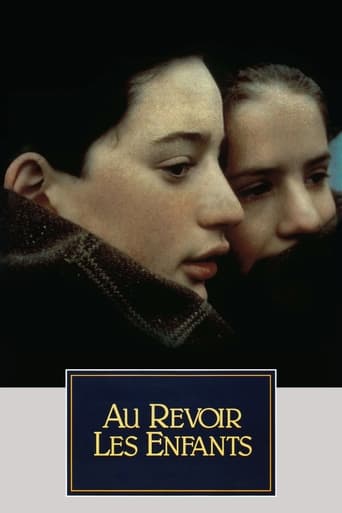

just watch it!
... View MoreGood start, but then it gets ruined
... View MoreExpected more
... View MoreThe tone of this movie is interesting -- the stakes are both dramatic and high, but it's balanced with a lot of fun, tongue and cheek dialogue.
... View MoreDuring WWII in Nazi occupied France, Julien Quentin is a momma's boy unhappy to return to St. John of the Cross Carmelite Convent Catholic boarding school with his old brother François. A new boy Jean Bonnet arrives at the school. They eventually become best friends and then Jean tells Julien that he's actually Jewish. Joseph works at the school and trades with the boys on the black market.Filmmaker Louis Malle base this on his youth in a Roman Catholic school. This is compelling personal history of the larger story. However there is a lack of tension. It's never in doubt that Bonnet was a Jewish boy in hiding. It may help if he was a blonde hair, blue eyed boy. There are a couple of incidences where Bonnet is in the vicinity of being discovered but the tension never build. There is a lot of boys being boys like a 'Lord of the flies' lite. It's a bit annoying and directionless. I do like some scenes that don't go straight like the restaurant where the German troops kick out the french police trying to take a Jew. The movie probably needs to give Joseph more time and set him up for the big turning point. The movie should probably concentrate mostly on Julien, Bonnet and Joseph and lose half of the rest.
... View MoreI'm writing this review primarily as a means to decompress after just finishing the film. First off, the film was beautiful, probably one of Louis Malle's most beautiful films and has just toppled "Murmur of the Heart" as my favorite Louis Malle film. The film made me weep openly and unabashedly in front of my roommates (perhaps I'd be embarrassed if they weren't also weeping)and I am weeping still as I write this. I'm too emotional to even think of anything else to say other than it is an amazing film and utterly timeless. Whether or not you are Louis Malle fan, I urge you to watch this film, it is important and very much a masterpiece.
... View MoreI loved the movie but there seemed to be one scene that didn't ring true. It is regarding the treatment of Jews during the Nazi occupation of France, so I would appreciate any input from French or Jewish readers or World War II buffs especially cognizant of that era. After 4 years of Nazi occupation and the pro-Nazi Vichy government under Petain, who gave free reign to the Gestapo to do whatever they pleased, wasn't it pretty obvious to the remaining Jews that they had to hide to survive? Why would that elderly Jewish man be sitting there in broad daylight in a public restaurant frequented by Nazis? And why wouldn't the priest have warned the Jewish child not to go into the town much less go to a public restaurant? In another film about that period, Francois Truffant's "The Last Metro", Catherine Deneueve's character Marion Steiner hides her Jewish husband Lucas Steiner in the cellar below her Paris theater to prevent him from being arrested by the Gestapo and sent to a concentration camp and certain death. That movie was set in 1942, two years before "Au Revoir Les Infants". Which is accurate?
... View MoreLike most people, Malle had an uneventful childhood as he attended a boarding school in France. Unlike most people, Malle felt a need to make a movie about this rather dull period of his life. There is nothing very interesting about watching boys going through their daily routines at school. There is no plot, just random episodes that fail to sustain a narrative flow. There's an extended scene where the two main characters are separated from their troop while playing a game in the woods. It seems like it's building up to something dramatic, but it just fizzles out. The final scene is powerful, but does not warrant having to sit through the rest of this underwhelming drama.
... View More